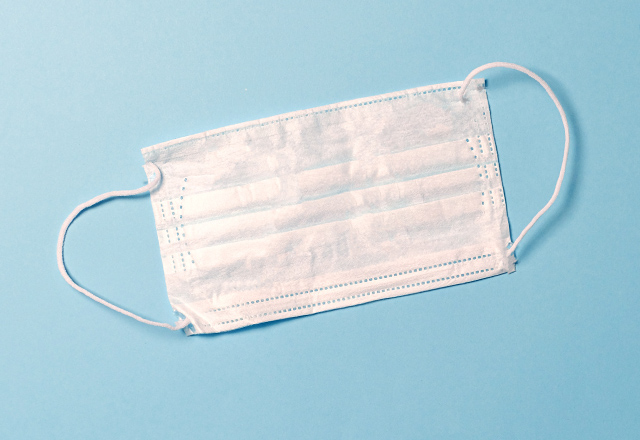In January 2020, infectious disease expert Peter Hotez spoke at Johns Hopkins about growing anti-science movements around the world. One of his quotes especially stood out: “Anti-science movements are the new normal, and not just vaccines.” The quote was prescient, though likely not for reasons Hotez anticipated.
Over six months since that lecture, Americans have divided over the science and usefulness behind wearing a mask to prevent COVID exposure. So-called anti-maskers have all but taken the anti-vaccination spotlight, especially as increasing numbers of people clamor for a COVID vaccine. However, since the anti-mask phenomenon began in the United States, many of the arguments used against compulsory masks echoed those used against vaccinations, namely: that masks are damaging to the wearer’s health, causing hyperventilation and limiting oxygen intake; that masks are ineffective and do little to stop the virus; that mandating masks is authoritarian and un-American; and that COVID is not a dangerous disease, making compulsory face coverings a ridiculous law. Despite how fallacious these claims are, most are not new. In fact, they are deeply tied to fundamental and long-standing concerns about modern public health laws, particularly compulsory vaccination. To better understand these claims, then, we need to consider the anti-scientific language they draw from, and move toward breaking the cycle at its source.
The contemporary perception that masks threaten the wearer’s health directly stems from the anti-vaxxer movement, though historians highlight similarities to perceptions about masks during the 1918–19 flu pandemic. More recently, anti-vaxxers have claimed that dangerous chemicals used in vaccine production cause autism and that the very diseases vaccines seek to prevent will infect, even kill, the recipient. Despite thorough debunking, these rumors persist. Similarly, mesh masks recently on the market exploit concerns over the potential toxicity of masks as health risks. Effective masks may not contain potentially deadly chemicals, but they supposedly trap carbon dioxide and thus render the wearer at greater risk for respiratory problems.
Some people believe these risks outweigh the threat of COVID, which many people equate to the seasonal flu. “How many kids have died from COVID this year and how many have died from the regular flu?” one Twitter user asked. “The regular flu is winning, and it’s not even close.” Another user stated, “We have had far, far worse diseases than COVID-19.” Such language is reminiscent of discussions around the MMR vaccine during the measles outbreak in 2019, during which many anti-vaxxers claimed the vaccine was more deadly than the disease. One peer-reviewed study in March 2019 noted that some anti-vaxxers linked the MMR vaccine to infertility in addition to autism and other childhood mental developmental issues. Many anti-vaxxers claim that measles itself, like chickenpox, was not a threat to young children and thus did not merit a mandatory vaccine. Masks and vaccines occupy two sides of the same coin in this case: People underplay the prevailing disease’s dangers to justify anti-public health and science legislation, willingly or naïvely misunderstanding the health risks accompanying those diseases.
For anti-science followers who do understand the threat of infectious disease, they often make one of two claims. The first group argues that following mandatory public health rulings violates one’s civil rights. In late July, a friend of mine claimed it was her “right to get sick” — in other words, she should not have to wear a mask if she disagrees with the action. Similarly, anti-vaxxers have long argued for the necessity of religious and civil exceptions to mandatory school vaccines, citing the right to protect their children against vaccine risks. These objections are, however, unsurprising. Historically, Americans have protested compulsory public health actions for a number of reasons, whether because of racial discrimination or fearing governmental authoritarianism. It makes sense that we see these arguments perpetuated today as public health actions such as vaccinations and masks become mandatory in public settings.
The second group of anti-science persons contend that some compulsory actions are ineffective and do little to stop infectious diseases. Anti-maskers diverge somewhat from anti-vaxxers in this argument — anti-vaxxers use it sparingly, whereas anti-maskers often use it prominently. One anti-science website, for example, paints mask-wearers as “fearful” — people wear masks, it argues, without considering whether masks are actually effective. Anti-vaxxers frame vaccines in a similar light. Vaccines and masks are not 100% effective against infectious diseases, leaving room for dispute. Furthermore, in a self-fulfilling cycle, people who do not, for example, receive the annual flu shot or refuse to wear masks are more at risk for disease, elevating infection rates and thus diminishing the perceived effectiveness of these public health prophylactics.
Although vaccines and masks are different public health tools, they serve similar ends and incite similar feelings when made compulsory. Clearly, squabbling over statistics and facts with anti-science persons often only deepens rather than heals divides. Perhaps it is time to try a new, and more thoughtful, tact. After all, as Peter Hotez noted, anti-science movements are here to stay. It’s time to conceptualize them as a tree with multiple branches rather than as separate plants, and thereby attack their roots, not just those leaves and branches.
Related content
- The Politics of a Pandemic
- Global Threats to Public Health: Dr. Peter Hotez on Climate Change, Conflicts, Poverty and Antiscience
- Don’t Be Fooled: Science Is Political
Want to read more from the Johns Hopkins School of Medicine? Subscribe to the Biomedical Odyssey blog and receive new posts directly in your inbox.

Pingback: Facts over Feelings – Biomedical Odyssey
Pingback: Vaccine Season in Full Swing – Biomedical Odyssey
Comments are closed.